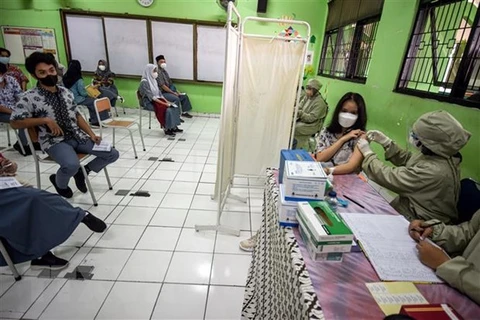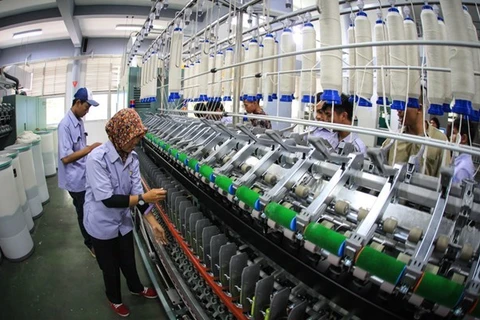Jakarta (VNA) - The Indonesian government’s health budget for 2021 has doubled since the beginning of the year to 193.93 trillion Rp (1.34 billion USD) as the pandemic continues to worsen and affect more and more Indonesians.
Finance Minister Sri Mulyani said the budgeted funds were for diagnostics, testing and tracing, health equipment, COVID-19 hospital treatment and a financial incentive for healthcare workers.
The budget allocation has been increased multiple times, from 87.55 trillion Rp to 172 trillion Rp and 185 trillion Rp before reaching 193.93 trillion Rp after the latest rise announced on July 5.
Sri Mulyani said the government had procured more than 53.9 million doses of coronavirus vaccines so far as it sought to increase the vaccine rollout to 2 million doses per day as soon as possible and 3 million doses per day by October.
Hospital bed occupancy was at 75 percent nationwide as of July 2, the health ministry said, but some hospitals on the most populous island of Java have reported over 90 percent capacity, including in the capital Jakarta.
Oxygen shortages have also been reported, which authorities attributed to distribution hurdles and limited production capacity./.
Finance Minister Sri Mulyani said the budgeted funds were for diagnostics, testing and tracing, health equipment, COVID-19 hospital treatment and a financial incentive for healthcare workers.
The budget allocation has been increased multiple times, from 87.55 trillion Rp to 172 trillion Rp and 185 trillion Rp before reaching 193.93 trillion Rp after the latest rise announced on July 5.
Sri Mulyani said the government had procured more than 53.9 million doses of coronavirus vaccines so far as it sought to increase the vaccine rollout to 2 million doses per day as soon as possible and 3 million doses per day by October.
Hospital bed occupancy was at 75 percent nationwide as of July 2, the health ministry said, but some hospitals on the most populous island of Java have reported over 90 percent capacity, including in the capital Jakarta.
Oxygen shortages have also been reported, which authorities attributed to distribution hurdles and limited production capacity./.
VNA























